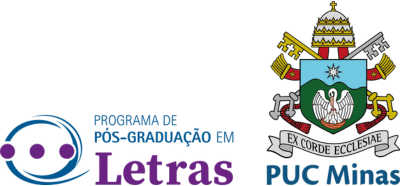Collections in Atonement, Oranges Are Not the Only Fruit, Bring up the bodies, and Cloud Atlas: A prelude
DOI:
https://doi.org/10.5752/P.2358-3428.2020v24n52p502-527Palabras clave:
Coleção. McEwan. Jeanette Winterson. Mantel. MitchellResumen
I will read the fascination with collectors and collecting in Ian McEwan’s Atonement (2001), Jeanette Winterson’s Oranges Are Not the Only Fruit (1985), Hilary Mantel’s Bring up the Bodies (2012), and David Mitchell’s Cloud Atlas (2004) regarding at least two theoretical questions. Can collected things and objects ever assist in the imagination of more satisfying social roles and identities? Can collecting material traces lead to an accurate or truthful depiction of the past-present-future life writing? Those novels represent one of the most popular and critically acclaimed examples of the widespread interest in collecting apparent in contemporary British fiction.
Descargas
Citas
ARMSTRONG, Nancy. The Future in and of the Novel. A Forum on Fiction, Vol. 44, No. 1 (SPRING 2011), pp. 8-10.
AVILA, Theresa. Teresa of Avila: The Book of My Life. New York: New Seeds, 2008.
BAUDRILLARD, Jean. The system of objects. Trad. James Benedict. London: Verso, 1996.
BENJAMIN, Walter. The Cambridge Introduction to Walter Benjamin, Cambridge: Cambridge University Press, 2008)
BIJON, Béatrice. Voices under Water: Jeanette Winterson's Oranges Are Not the Only Fruit. Études Anglaises 2008/3 (Vol. 61), pp 320 – 329.
BORDO, Susan. When Fictionalized Facts Matter. The Chronicle of Higher Education. Washington (May 6, 2012): n/a.
D'ANGELO, Kathleen. To make a novel: The construction of a critical readership in Ian McEwan’s Atonement. Studies in the Novel, Vol. 41, No. 1 (spring 2009), pp. 88-105.
DERRIDA, Jacques. Memoirs of the Blind: The Self-Portrait and Other Ruins. Chicago: University of Chicago Press, 1993.
D'HOKER, Elke. Confession and Atonement in Contemporary Fiction: J. M. Coetzee, John Banville, and Ian McEwan. Critique: Studies in Contemporary Fiction, 48:1, 31-43, 2006.
EAGLETON, Terry. A beautiful and elusive tale. The Lancet, v. 358, December 22/29, 2001, p. 3.
Eve, M. P. “You Have to Keep Track of Your Changes”: The Version Variants and Publishing History of David Mitchell’s Cloud Atlas. Open Library of Humanities, 2(2): e1, pp. 1–34, 2016.
FOUCAULT, Michel. The Order of Things. New York: Vintage Books, 1994.
FRASER, Ian, Class Experience in McEwan's Atonement. Critique: Studies in Contemporary Fiction, 54:4, 465-477, 2013.
IONESCU, Andrei. A Manifesto Against Failures of Understanding: Ian McEwan’s Atonement. Critique: Studies in Contemporary Fiction, 58:5, 600-618.
HABIG, Marion A. O.F.M. The Works of St. Bernardine, Franciscan Studies, v. 4, n. 3, September 1944, pp. 229-246
HORTLE, Luke. Mitchell’s Cloud Atlas and the Queer Posthuman. Literature Interpretation Theory, 27:4, 253-274, 2016.
LACROIX, Alison L., MCADAMS, Richard H., and NUSSBAAUM, Martha C. Fatal Fictions: Crime and Investigation in Law and Literature. Oxford: Oxford Scholarship Online, 2016.
MANTEL, Hilary. Bring up the Bodies. New Yok: Picador, 2012
MARGARONIS, Maria. The Anxiety of Authenticity: Writing Historical Fiction at the End of the Twentieth Century. History Workshop Journal, No. 65 (Spring, 2008), pp. 138-160.
MATHEWS, Peter. The Impression of a Deeper Darkness: Ian McEwan’s Atonement. ESC 32.1 (March 2006): 147-160.
MCEWAN, Ian. Atonement. London: Vintage Books, 2001.
MEZEY, Jason Howard. A Multitude of drops: recursion and globalization in David Mitchell’s Cloud Atlas. Modern Language Studies, Vol. 40, No. 2 (WINTER 2011), pp. 10-37.
MALRAUX, André. O museu imaginário. Trad. Isabel Saint-Aubyn. Lisboa: Edições 70, 2011.
MAURIÈS Patrick. Cabinets of Curiosities. London: Thames & Hudson, 2002.
MITCHELL, David. Cloud Atlas. London: Hodder and Stroughton, 2004.
O'HARA, David K. Briony's Being-For: Metafictional Narrative Ethics in Ian McEwan's Atonement. Critique: Studies in Contemporary Fiction, 52:1, 74-100, 2011.
PICK, David. Rethinking organization theory: The fold, the rhizome and the seam between organization and the literary. Organization, 2017, Vol. 24(6) 800–818.
VON OORT, Richard. The Critic as Ethnographer. New Literary History, n. 35, 2005, p. 651.
SHAW, Kristian. Building Cosmopolitan Futures: Global Fragility in the Fiction of David Mitchell. English Academy Review, 32:1, 109-123, 2015.
SU, John J. Fantasies of (Re)Collection: Collecting and Imagination in A. S. Byatt's "Possession: A Romance". Contemporary Literature, Vol. 45, No. 4 (Winter, 2004), pp. 684-712
SPIRIDON, Monica. The (meta)narrative paratext: coda as a cunning fictional device. Neohelicon (2010) 37:53–62.
SWANN, Marjorie. Curiosities and Texts: The Culture of Collecting in Early Modern England. University of Pennsylvania Press, 2001.
WALLACE, Diana. The Woman's Historical Novel: British Women Writers, 1900-2000. New York: Palgrave Macmillan Limited, 2004.
WINTERSON, Jeanette. Oranges are the Only Fruit. London Heinemen, 1985.
WITTGENSTEIN, Ludwig. Tractatus Logico-Philosophicus. London: Kegan Paul, 1922.
Descargas
Publicado
Cómo citar
Número
Sección
Licencia
DECLARACIÓN DE DERECHO AUTORAL
Derechos autorales
El envío de cualquier colaboración implica, automáticamente, la cesión integral de los derechos autorales a PUC Minas. Se solicita a los autores que aseguren:
- inexistencia de conflicto de intereses (relaciones entre autores, empresas/instituciones o individuos con interés en el tema abordado por el artículo), y
- órgano o instituciones financiadoras de investigación que ha dado origen al artículo.









